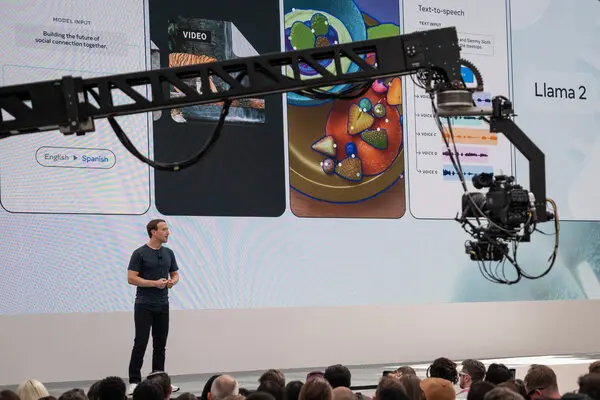Introduction
In the rapidly evolving frontier of artificial intelligence and public infrastructure, a new breed of celebrity investors is stepping into the limelight. When high-profile individuals from entertainment platforms combine with deep tech ambitions and global political ambitions, the resulting mix redefines what we mean by innovation.
This story follows how prominent figures, once known only for film and television, are now using their influence to shape AI-driven infrastructure projects around the world. Their engagement raises questions not only of celebrity-capital but also of governance, diplomacy and digital sovereignty.
Technology and the Rise of Global Influence
High profile entertainers are increasingly investing in AI technologies that underpin large-scale infrastructure. What was once the domain of enterprise tech firms is now seeing celebrity-backed ventures building data centres, automated transit systems and smart grids. These projects span continents and leverage both private capital and public-sector partnerships.
Because infrastructure projects often require diplomatic approval, foreign aid cooperation or engineering consortia, the intersection of celebrity endorsement and deep tech brings new dynamics. The influence of a star for example may smooth regulatory friction, open doors in emerging markets or bring heightened media visibility to long-under-the-radar deals. In turn, this raises the question: when celebrity capital meets infrastructure, who holds the real power?
Celebrities as Digital Activists in the New Era
Several celebrities have shifted from red-carpet appearances to board-room seats, making strategic plays in AI startups and smart-city rollouts. Their public platforms offer more than marketing; they position them as digital activists advocating for inclusive access, data ethics and sustainable growth. By launching or partnering with platforms that use AI to optimize energy usage, improve transit or manage urban planning, they’re stepping into the role of tech-enabled change-makers.
However, this activism comes with political overtones. When a celebrity fund backs a smart-city project in a geopolitically sensitive region, their public persona becomes intertwined with state interests, local governance and international scrutiny. The question becomes whether such celebrity-tech activism is a force for public good, or a brand strategy wrapped in global influence.
Political Reactions to the Digital Economy
Governments are reacting not only to technological change but to the new players emerging in the digital economy. As celebrities deploy AI and infrastructure projects worldwide, regulators and policy-makers are compelled to assess what kind of influence these actors wield. Some governments welcome celebrity-backed investment as a means to accelerate digital growth, while others view it with suspicion.
For example, in nations where data sovereignty is a concern, foreign celebrity-capital raising smart-city projects may trigger national security reviews, regulatory push-back or calls for transparency. The digital economy is not simply about software and hardware—it is about power, control and global alignment. Thus, celebrity-tech deals morph into diplomatically charged transactions.
The Global Impact of AI and Social Media
AI infrastructure built by celebrity-backed ventures often intertwines with social-media platforms, influencer networks and global outreach. Consider a transit system powered by AI that uses data from social-media sentiment to adjust operations, or a city grid linked to a celebrity’s philanthropic AI initiative. These cross-links amplify impact but also increase risk of data-misuse or reputational damage.
On the global stage, social-media amplification means that an infrastructure hiccup or activist backlash can attract instant world-wide attention. The interplay of AI, celebrity reach and global media coverage increases both upside and vulnerability. Governments and corporations alike must now factor in reputational risk at the speed of viral shares.
Innovation Meets Diplomacy: The New World Order
The traditional world order of infrastructure diplomacy is undergoing disruption. Where once large national construction firms and multilateral banks dominated, now celebrity-driven tech projects are emerging—bringing new forms of soft power. A celebrity might fund an AI-powered desalination plant in a developing country, win media acclaim, build local jobs, and leverage new relationships.
This fusion of innovation and diplomacy compresses timelines and raises stakes. Projects are less about bricks and mortar and more about data pipelines, AI models and global partnerships. It also invites scrutiny: which norms govern the celebrity investor, whose interests are prioritized, and how is governance structured? We are witnessing a new level of geopolitical technology play.
FAQs
What role do celebrities play in AI-infrastructure investments?
Celebrities often provide capital, public visibility, brand partnerships and access to social networks. Their involvement can accelerate fundraising and project awareness, but also attract heightened scrutiny around governance and motives.
Can celebrity-backed infrastructure deals bypass traditional regulatory channels?
They may gain attention and momentum, but they cannot legally bypass regulatory processes. Governments must still approve partnerships, data-access arrangements and public-private contracts, though celebrity reputation may influence negotiations.
What are the risks associated with combining social media, AI and infrastructure?
Risks include data privacy violations, algorithmic bias, operational failures amplified by media, reputational damage, and geopolitical sensitivities especially when projects involve foreign jurisdictions or public assets.
How are governments responding to this trend?
Some governments embrace celebrity-backed projects as innovative and job-creating; others approach them cautiously, imposing stricter governance rules, transparency demands and national security assessments around data and infrastructure control.
Does this trend signify a shift in how infrastructure is funded and managed?
Yes. The integration of celebrity capital, AI technology and global media means infrastructure is increasingly about digital platforms and influence ecosystems rather than just concrete and steel.
Conclusion
The arrival of high-profile celebrities into AI-powered infrastructure signals a novel convergence of entertainment, technology, media and global investment. It reshapes not only how projects are funded and managed but introduces new actors into arenas of governance and diplomacy.
As these celebrity tech ventures expand, stakeholders must remain vigilant about accountability, data ethics and power dynamics. The future of infrastructure may well depend on how effectively these new players align innovation and public interest in a rapidly shifting world.

Leave a Reply